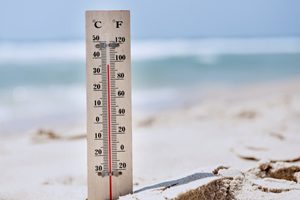
Have you noticed that your seasonal allergy symptoms are worse than ever this year? If so, you can rest assured knowing that you aren't alone — and that there may be a scientific explanation behind this frustrating reality.
According to CBS Chicago, experts who have been charting pollen counts over the years have noticed that allergy seasons are getting longer due to a number of reasons that may include climate change and an increase in pollution. With temperatures rising as a result of global warming, the news outlet notes that allergy seasons are extending by as many as 12 days compared to a couple decades ago. And, as carbon dioxide levels grow, plants are producing up to 50 percent more pollen than they have in the past.
These factors are causing individuals who are allergic to these irritants to experience notably severe symptoms.
"[I'm allergic to] trees, bushes, anything that gives off pollen. I try to stay away from that stuff," allergy sufferer George Rief told the source. "My ears plug up in the morning. I can stand right in front of our keypad for our alarm system and I can't hear those little beeps and I'm only a foot away from them."
A longer allergy season means more exposure to irritants that have the potential to reduce your quality of life. With this in mind, it's imperative for allergy sufferers to be proactive when it comes to preventing and limiting their symptoms. By using hypoallergenic mattresses, sheets and pillowcases on your bed, you can reduce the amount of allergens that you come in contact with while you sleep at night.









